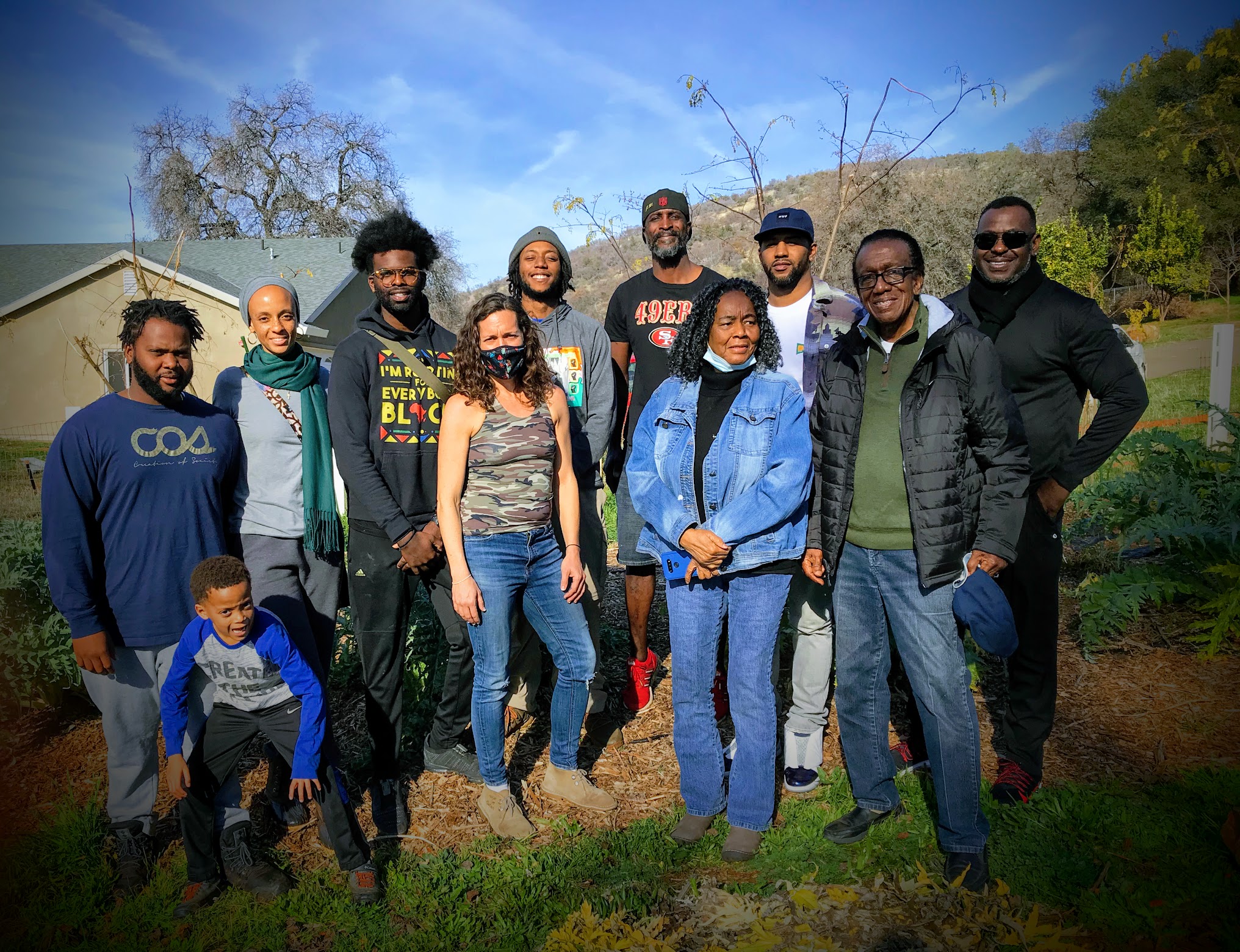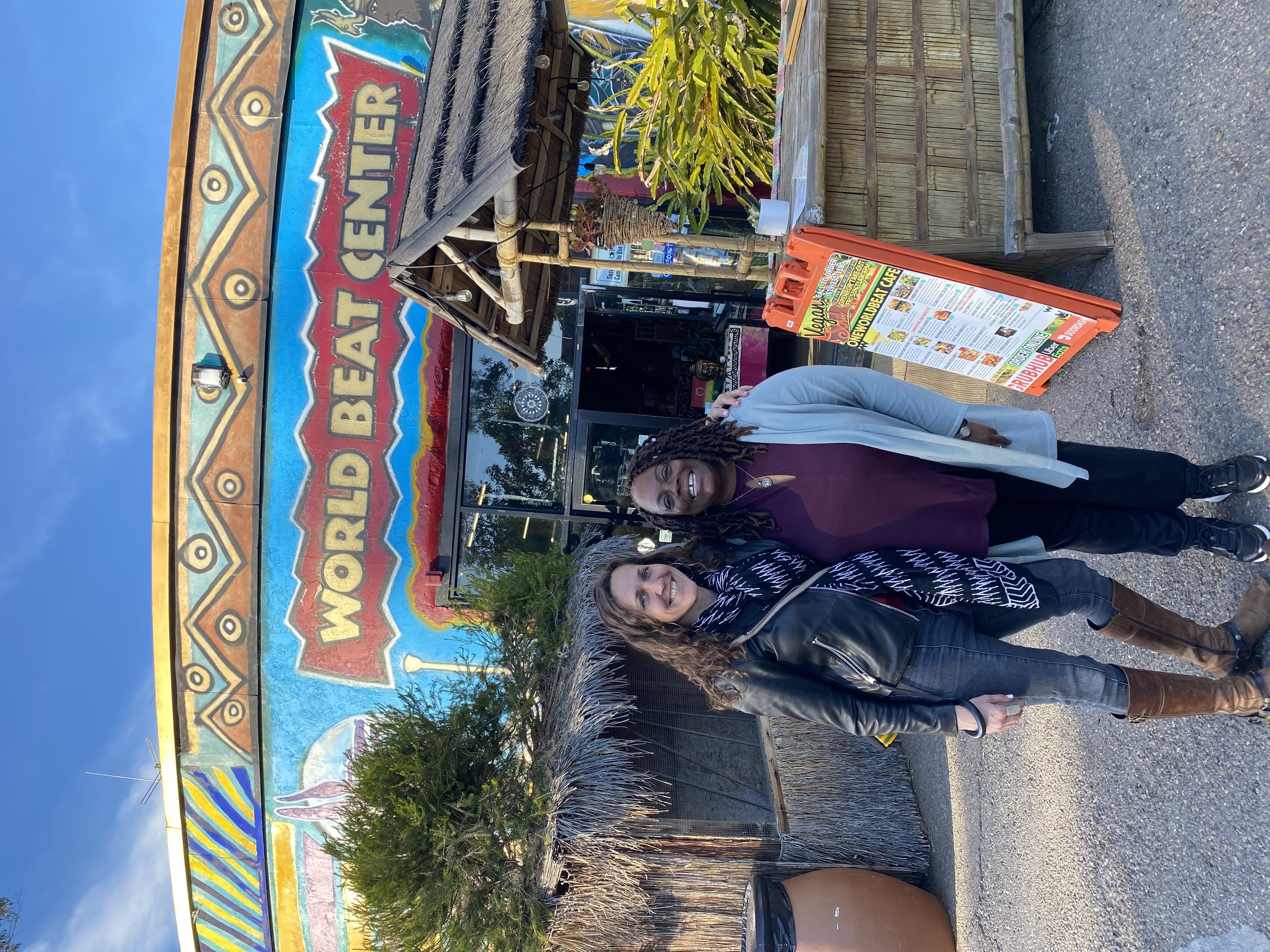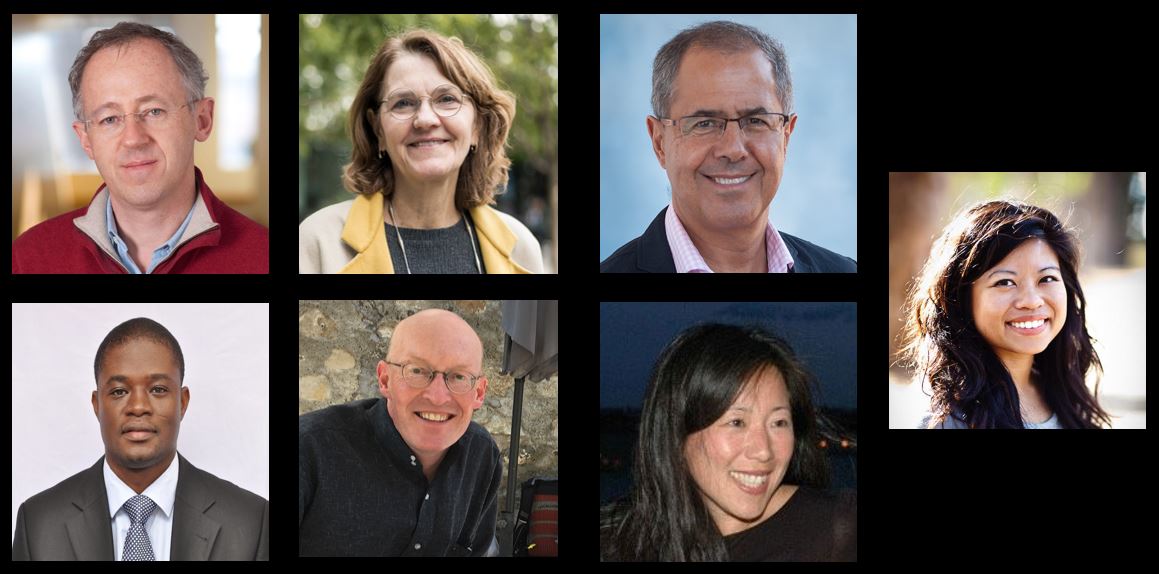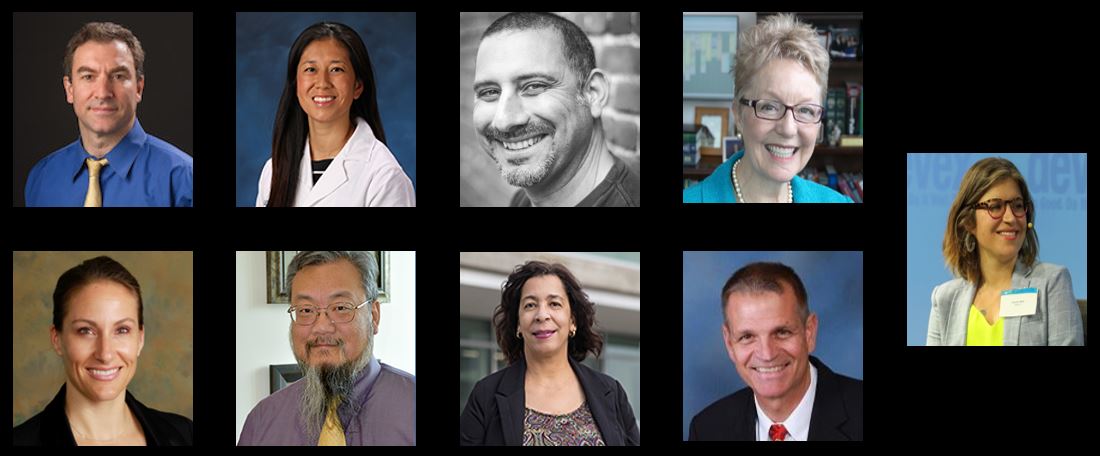In 2021, the UC Global Health Institute (UCGHI) launched the Incubator Awards, a competitive planning grants program that provided up to $10,000 in funding for multi-campus and multidisciplinary initiatives. The program gave awards to seven teams working on diverse topics that aligned with global health. In 2022, as part of the program’s next phase, UCGHI awarded three of the initiatives $30,000 each to continue their work for an additional year. The initiatives focused on championing food justice and health equity; accelerating implementation science and research translation; and unraveling the complexities of perioperative and surgical health equity. Here’s an overview of the teams’ accomplishments so far and their future goals.
Cultivating Community

The multi-campus Food Justice and Health Equity initiative, led by Dr. Carrie Waterman, UC Davis, and Dr. Susana Matias, UC Berkeley, seeks to make a transformative shift to address and resolve systemic racism in the food justice sphere by linking global health leaders with researchers and communities focused on food security and sovereignty. Its team, which can be found on X and Instagram, looks to provide educational and professional growth at the intersection of race, justice, global health, and food systems across the world.
In the last year, it has made major strides in its goal of forging connections between the disparate groups interested in food security and sovereignty. Dr. Waterman highlighted in particular the success of its partnership with San Diego’s Worldbeat Center, a nonprofit multi-cultural arts organization with a museum and classes: “They had events where there were thousands of people, and we had tables there. They really represent a really interesting mix of science, academia, and also interactions with the community.”

The team's monthly online panel discussions and various in-person events further facilitated connections, drawing together local, national, and international stakeholders such as farmers, academics, students, and nonprofit organizations. Talks covered wellness, nutrition, health, and more. “The idea [of the initiative] was to create a network of BIPOC [Black, Indigenous and People of Color] people and groups who were focused on issues of food systems, I think the [team] did that very nicely and very beautifully led by Carrie,” says Dr. Matias. Going forward, Dr. Waterman would like to distill the twenty-five hours of content from the events and panels down to two hours and use the footage as the basis for a workshop to incorporate into the Food Justice curriculum and workshops for community members, faculty, and other stakeholders.
An unexpected outcome was a new UC Davis course based on the team’s activities developed by Dr. Waterman offered this Fall as part of Quarter as Aggie Square, “People, Plants, and the Planet.” It offers a hands-on approach to learning about food justice and health equity by connecting students with local community and researchers actively working in this field.
Dr. Waterman hopes “People, Plants and the Planet” serves as a model for all UC campuses. Other plans for the team’s future include garnering additional funding and increasing the involvement of other UC academics in the short-term and more global academics in the long-term.
Moving Research into Practice

Co-lead Dr. Stefano Bertozzi, UC Berkeley, sums up the purpose of the Implementation Science and Research Translation initiative, which prefers to be called a “collaborative,” as taking “implementation science, which exists to varying degrees on UC campuses and make it a system-wide effort.” Implementation science and research translation are fields that study methods, strategies, and processes to get research findings into practice. The collaborative has goals of accelerating UC system-wide efforts to facilitate knowledge exchange, building UC- wide capacity for policy-engaged research, accelerating the research-to-use pathway, fostering transdisciplinary research collaborations, and increasing global policy dialogue.
There is a significant demand from federal and or state government entities for implementation science and research translation, and this collaborative supported by UCGHI has had initial conversations with The California Endowment, Bill and Melinda Gates Foundation, and USAID. Stakeholders, Dr. Bertozzi says, are attracted to “the idea that it brings the academy closer to the needs of Californians. This is very much applied science to real problems in the state, that is something that is desirable.” Although implementation science started external to the health space, it has broad applications, including to education and social welfare.
Much of the work being done across the UC system on implementation science and research translation tends to be siloed. The collaborative seeks to draw the dispersed efforts together. This year, it established a pool of implementation science experts from nine UC campuses, and with the backing of Vice-Chancellors, applied for a Multicampus Research Programs and Initiatives (MRPI) funding. Although the team was not selected for funding, through the process they demonstrated that “there’s a demand and also just a nice, abundant supply of people who are in the same space, but don’t know about each other,” says co-lead Dr. Hildy Fong Baker, UC Berkeley. It has also laid the ground for future funding proposals.
Additionally, the collaborative has taken four implementation science graduate courses offered at UC Berkeley and UC San Diego and is turning them into a UC Online course.
Looking forward, Dr. Bertozzi “would like to submit additional grant applications and get funded so we can really start working.” Dr. Fong Baker says that she hopes to “launch the website and be able to bring together the various faculty we’ve found over the year in some organized way.”
Advancing Equity in Surgical Care

The Perioperative and Surgical Health Equity (PSHE) initiative, led by Dr. Doruk Ozgediz, UCSF, and Dr. Theresa Chin, UCI, seeks to decrease the disparity of access to surgical and anesthesia care, which accounts for 30% of the global burden of disease, by uniting eight UC campuses (UCSF, UCI, UCB, UCD, UCLA, UCR, UCM, UCSD) and their partners to advance equity in surgery, anesthesia, and perioperative care through ethical and innovative research, education, and community engagement.
Its work included selecting two grant seed awardees for $15,000 grants each. The first went to Dr. John Rose from UCSF, Dr. Stephen Bickler from UCSD, and Dr. Matchecane Cossa, a UCGHI GloCal alumni from the 2015-2016 cohort, and Director of the National Program of Surgery, Ministry of Health of Mozambique. Their project involves incorporating data informatics into population level global surgery indicators. It builds on longstanding collaborations between UCSD and UCSF with Mozambique and prior work on a national survey of surgical access and indicators in Mozambique.
The second team of awardees were Dr. Lan Vu from UCSF and Dr. Jonathan Kohler from UC Davis, to identify how social determinants of health impact outcomes within a national quality database for pediatric surgery.
The Inaugural Annual UC Wide Joint Surgery Health Equity Grand Rounds was held Sept 7, 2022 (UCSF, UCSD, UC Davis, UCLA, UC Irvine) allowing each campus to present their current projects related to domestic and international surgical health equity. This was noted to be a priority among the leadership of all the UC Surgery Departments and has led to a second pan-campus grand rounds that will focus on mentoring
Currently, a PSHE intern is curating a lecture series for this team with Global Surgery Student Alliance (GSSA) chapters co-planning; creating and maintaining a database for the global surgery projects within the UC system; and developing content for the PHSE website.
Charting a Course Forward
While it can be complex to manage these ambitious initiatives, especially with limited funding, one thing the grantees can rely on is their passion and dedication to these initiatives that have the potential to transform the world far beyond UC campus boundaries. “We’re focused on creating real change, and that’s what the public will eventually notice through their own experience,” says UC Berkeley’s Dr. Fong Baker from the Implementation Science and Research Translation initiative. Their collective progress not only serves as a model of transdisciplinary and community collaboration but also illustrates the potential for tangible impact across the University of California system and beyond.
